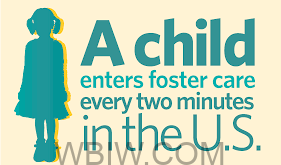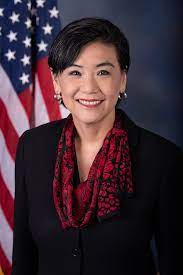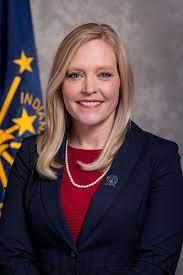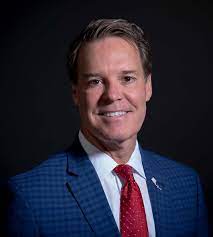
WASHINGTON, D.C. — Last week, ahead of a House Ways and Means Subcommittee on Work and Welfare hearing on supporting youth aging out of foster care, Reps. Judy Chu (CA-28) and Erin Houchin (IN-09) introduced the Increasing Access to Foster Care Through 21 Act, which would incentivize all states to extend child welfare support and services for foster youth through age 21.

Approximately 20,000 young people age out of care each year, often without a supportive adult presence in their lives. Research shows that extending support into the first few years of adulthood can make a positive difference in the lives of youth in care.
Recognizing this, 28 states, the District of Columbia, and nine Tribes have extended Title IV-E foster care for youth beyond age 18 after Congress passed the Fostering Connections to Success and Increasing Adoptions Act in 2008, which gave states the option to do so. By providing an incentive for additional states to extend the age through 21, more child welfare agencies will prevent the foster youth in their care from aging out of the system alone and unsupported on their 18th birthday.

“California was one of the first states to provide foster care benefits to young adults through age 21, and we have seen the positive impact this has had in the lives of youth in foster care, supporting their physical and mental health, economic success, and overall satisfaction with life. Many young people across the country, however, lose crucial foster support the moment they turn 18,” said Rep. Chu. “Rep. Houchin’s Increasing Access to Foster Care Through 21 Act is a bipartisan improvement to our nation’s foster care system – helping states support young adults from 18 through 21 to continue obtaining supportive foster services as they begin exploring the freedom and opportunity adulthood provides.”

“As someone who dedicated the first part of my career to child services, I am thrilled to co-lead the Increasing Access to Foster Care Through 21 Act alongside Rep. Chu. Our goal is to provide vital support and services to young adults navigating the challenges of aging out of foster care,” said Rep. Houchin. “I have witnessed the positive impact of such programs firsthand. By extending care through age 21, we ensure these individuals have the resources and essential opportunities for a successful transition into adulthood.” The Increasing Access to Foster Care Through 21 Act would:
- Provide a financial incentive to states to take up the option to extend care by removing Title IV-E income eligibility requirements for youth ages 18-21, which currently tie a young person’s eligibility for services to the income of their often-estranged parents or legal guardians, thereby ensuring states receive the federal match for their costs.
- Provide that by opting to extend care through age 21, youth who voluntarily leave care at 18 would have the ability to re-enter care should they need to.
- Ensures categorical eligibility for extended care for youth ages 18 through 21.
- Requests the Administration for Children and Families (ACF) to issue guidance in consultation with the Department of Labor (DOL) on how caseworkers can better connect foster youth with Workforce Innovation and Opportunity Act (WIOA) youth job programs.

“Youth Villages applauds Congresswoman Judy Chu of California and Erin Houchin of Indiana for their demonstrated commitment to ensuring that that every young adult aging out or on track to age out has the best opportunity for a successful adulthood—with the skills and resources to achieve his or her goals,” said Patrick Lawler, CEO of Youth Villages. “The Increasing Access to Foster Care Through 21 Act includes removing the outdated income test, Aid to Families with Dependent Children (AFDC), for older youth and providing state incentives to receive federal match for foster care services for all youth in extended foster care. By allowing youth to re-enter foster care through age 21, this bill exhibits Congress’ commitment to providing extended foster care and preventing thousands of youth from aging out of the system alone and unsupported.”

“The Child Welfare League of America is pleased to endorse the Increasing Access to Foster Care Through 21 Act,” said Linda Spears, President and CEO of the Child Welfare League of America. “Federal data tells us that compared to youth that leave foster care at age 18, youth who remain in care longer have better outcomes across multiple measures. This legislation builds on the advances in support and service provision made by states that currently extend foster care beyond the age of 18. It is a positive step toward ensuring that all foster youth can remain in care until age 21, regardless of where they live. CWLA applauds Representatives Chu and Houchin for their commitment to improving support for older youth with child welfare system involvement.”



